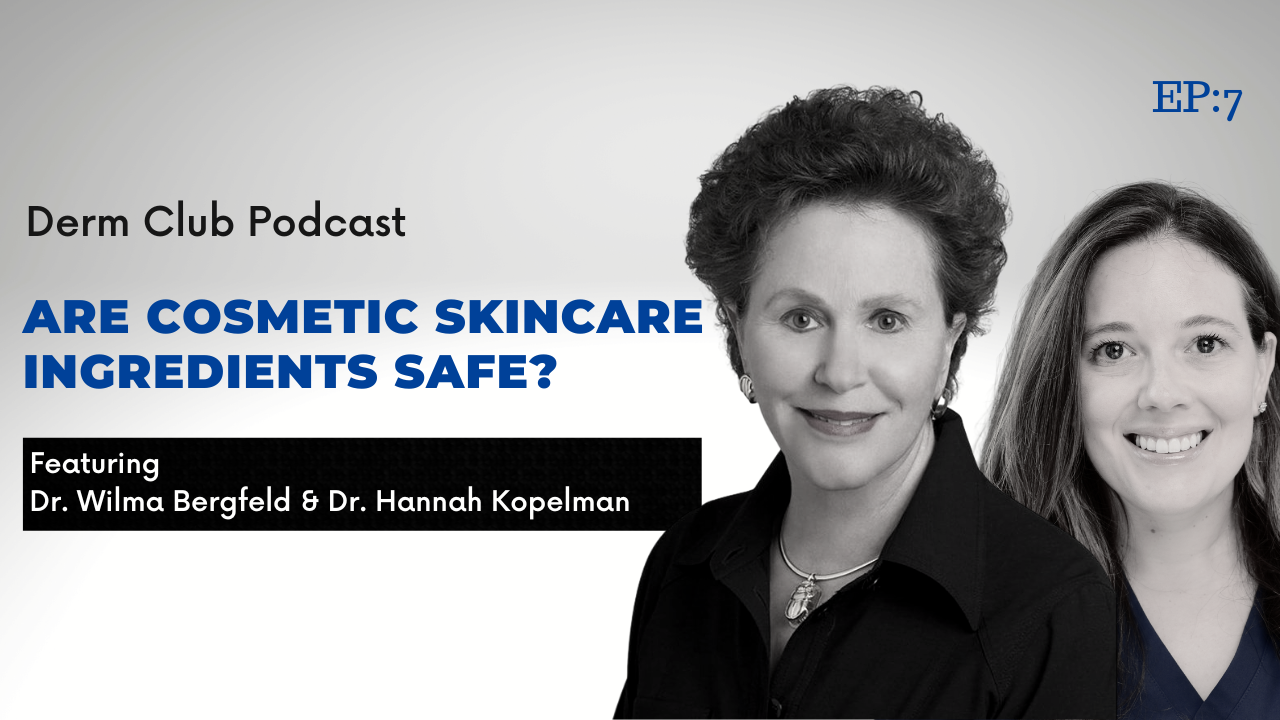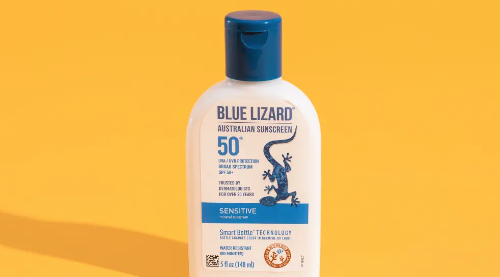In a recent riveting episode on the Derm Club podcast, the spotlight was on the esteemed Dr. Wilma Bergfeld, an illustrious figure in the world of dermatology and the cosmetic ingredient safety space. As an authoritative voice and tireless leader of the Cosmetic Ingredient Expert Panel for over forty years, her insights into the safety of cosmetic ingredients used worldwide are deeply significant.
Think about this: every morning, we adorn our skin with a medley of cosmetics packed with various chemicals. But how sure are we of their safety? Stepping into this uncertainty, Dr. Bergfeld draws from her wealth of knowledge, offering a fresh perspective on the safety and potential risks tied to makeup ingredients.
Dr. Bergfeld’s accolades extend beyond her work in cosmetic safety. As the Emeritus Director and Co-Director of Dermatopathology at the Cleveland Clinic, a consultant to the FDA Dermatology Advisory Committee, and a past president of both the American Dermatologic Association and the North American Hair Research Society, her impact on the field is immeasurable. In fact, she was honored with the Woman’s Dermatological Association Rose Hirschler Award in 1996, recognizing her efforts to pave the way for women in dermatology.
The discussion embarked on a fascinating exploration of skincare ingredients to avoid, and those potentially teetering on the brink of safety. Dr. Bergfeld assures us that today’s cosmetics are largely safe, with the Cosmetic Ingredient Review panel having ruled out approximately 12 of 6000 ingredients as unsafe or lacking adequate scientific proof of safety.
A pivotal aspect Dr. Bergfeld addressed was the matter of skin sensitivity resulting from cosmetic allergies. Specifically, in cases of frontal fibrosing alopecia (FFA) – a hair disease associated with scalp discomfort – nearly half of patients suffer allergies to fragrances, suggesting the need for cosmetics companies to devise more hypoallergenic formulations.
The dialogue also broached the subject of botanical ingredients. Despite the marketing allure of being ‘natural,’ they often lack comprehensive safety data, and could potentially trigger allergic reactions. Thus, Dr. Bergfeld cautions that ‘natural’ does not automatically equate to ‘safe.’
The safety of organic products was scrutinized, with the terms ‘organic’ and ‘natural’ not automatically signifying safety, especially given the lack of exhaustive scientific data. If animal derivatives are employed, they must be thoroughly examined to ensure they are free of infectious agents.
Discussing the complex world of cosmetic marketing, it became evident that the panel’s influence lies in scientific evaluation rather than political clout. If a potential risk emerges, the FDA assumes responsibility for implementing action.
Intriguingly, the conversation veered towards the rising incidence of frontal fibrosing alopecia (FFA) cases in pre-menopausal women, spurring debates on a possible connection between FFA and sunscreen, and potential sensitivities to cosmetic fragrances. Further investigation is needed to conclusively establish this link.
The labyrinth of cosmetic ingredient safety is vast and intricate. Yet, the invaluable insights offered by Dr. Bergfeld spotlight the relentless efforts of the Cosmetic Ingredient Expert Panel to prioritize consumer safety. Their dedication ensures that the cosmetics we rely on daily are held to the highest safety standards.
In addition to her extensive discussion on cosmetic ingredients safety, Dr. Bergfeld delved into the rigorous testing procedures and elimination of harmful elements, such as specific parabens and hair dyes. She explored the world of skin sensitivities and allergic reactions, particularly in relation to titanium in certain sunscreens. Amid fears of cosmetics possibly altering the skin’s microbiome or causing cancer, she resolutely debunked such misconceptions. From her robust defense of the cosmetic industry to her insightful guidance on product selection and usage, her wisdom proved enlightening.
On the topic of cosmetic use during pregnancy and breastfeeding, Dr. Bergfeld’s advice was straightforward – avoid retinoids, which are vitamin A derivatives. Beyond that, she sees no substantial evidence suggesting that these products pose any harm.
Concluding with a personal touch, Dr. Bergfeld shared her journey to becoming a part of the CIR panel. Her role representing the Women’s Derm Society, and her global approach towards her work on the panel, continue to contribute significantly to our understanding and assurance of cosmetic ingredient safety. Her ongoing work serves as a testament to her dedication and passion for the field, a beacon of reliability in a sea of uncertainty.





